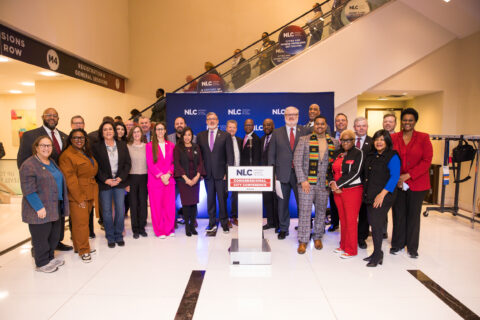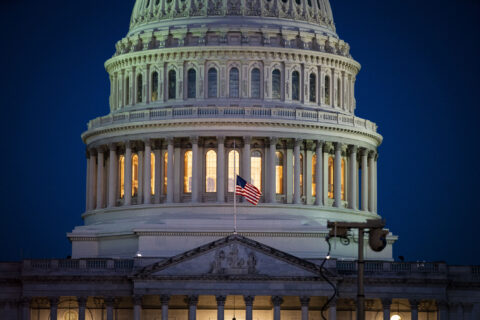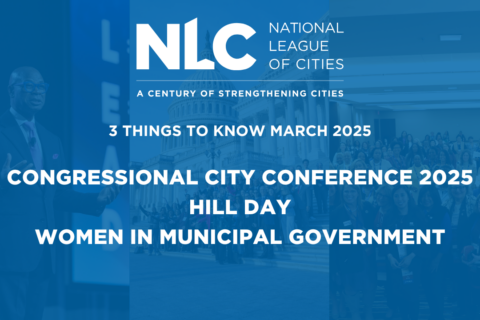On May 11, 2023, in a win for local governments, the Supreme Court rejected an overly expansive view of the dormant Commerce Clause in National Pork Producers Council v. Ross. Justice Gorsuch, writing for the majority, declined the pork producers’ arguments which would have “fashion[ed] two new and more aggressive constitutional restrictions on the ability of States [and local governments] to regulate goods sold within their borders.”
This case involves California’s Proposition 12, which prevents the sale of “[w]hole pork meat” in the state unless the meat was produced in compliance with “specified sow confinement restrictions.” Specifically, under the law, the breeding pigs cannot be confined in stalls so small that the pigs cannot lie down, stand up or turn around. Proposition 12 was intended to prevent animal cruelty.
The National Pork Producers Council sued the state, claiming that Proposition 12 violates the dormant Commerce Clause. The Constitution vests Congress with the power to “regulate Commerce . . . among the several States.” In this case, the pork producers allege that the California law violated the dormant Commerce Clause by impermissibly regulating extraterritorial conduct outside of the State and that the law imposes an undue burden on interstate commerce. The plaintiffs claim the law will result in a 9.2 % increase in production cost for pork on an industry level.
In a 5-4 decision that split on non-ideological lines, the Supreme Court held that States (and local governments) may not use their laws to “discriminate purposefully against out-of-state economic interests.” But in this case, the parties agreed that California’s law was not discriminatory as it applied equally to in-state producers of pork and it therefore did not violate the dormant Commerce Clause. The Court rejected what it called the pork producers’ more “ambitious theories,” including the “extraterritoriality doctrine,” which would invalidate laws regardless of any discriminatory purpose or effect on interstate commerce.
In rejecting the petitioner’s broad extraterritoriality theory, the Court noted such an application could invalidate a host of laws in the country’s “interconnected national marketplace.” According to the Court, these could include state income tax laws, environmental laws, securities requirements, quarantine laws, inspection laws, franchise laws, torts laws, among others. Any of these laws can have a “considerable influence on commerce outside their borders.”
IMLA, the National League of Cities, the International City/County Management Association and the US Conference of Mayors filed an amicus brief in this case making a similar point. In the brief, which was authored by John Korzen, the Director of the Appellate Advocacy Clinic at Wake Forest University School of Law, we argued that a broad extraterritoriality rule as proposed by the petitioners could disrupt a myriad of local ordinances, including regulations on short term rentals, graffiti, hazardous materials and puppy mills.
The Court’s result today reaffirmed that local governments may continue to regulate for the health, safety and welfare of their citizenry unless such regulations discriminate against interstate commerce.
About the Author:
Amanda Karras is the Executive Director and General Counsel for the International Municipal Lawyers Association (IMLA). NLC, IMLA, and NACo formed the Local Government Legal Center (LGLC) in 2023, a coalition of national local government organizations to provide education to local governments regarding the Supreme Court.








